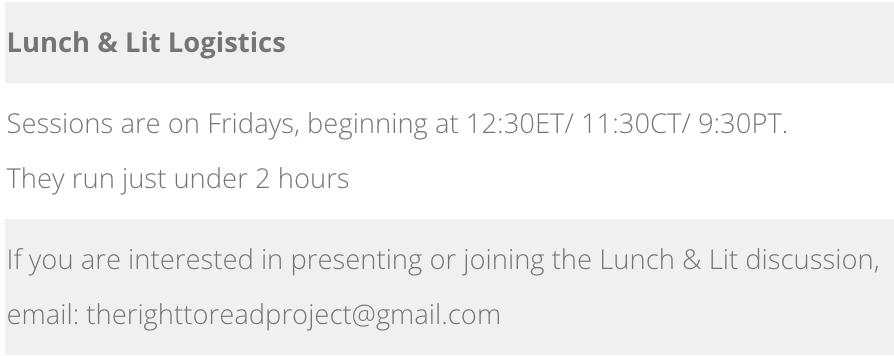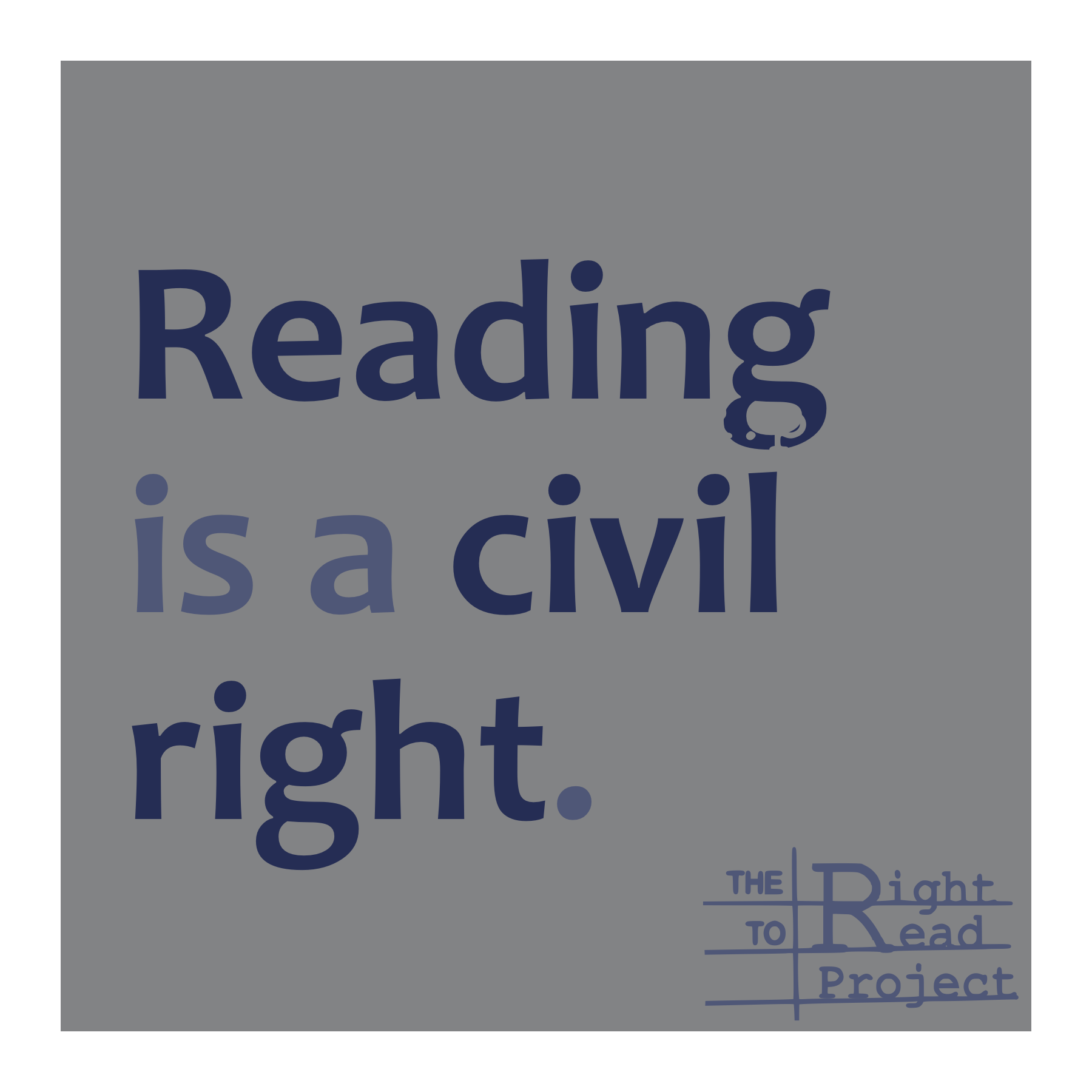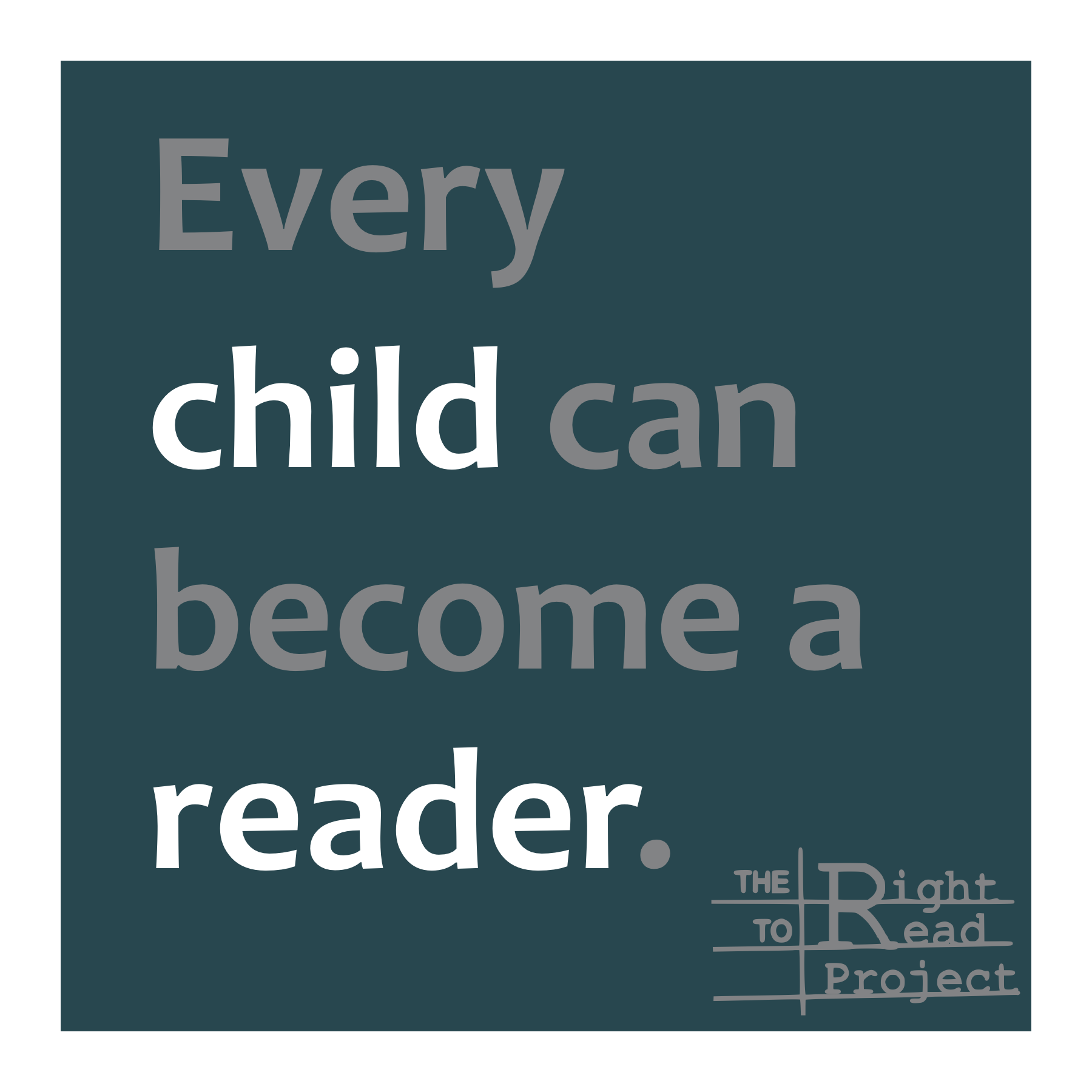The weekly Lunch & Lit aims to bridge the research to practice divide by bringing scientists and practitioners together to discuss their work.
The Barksdale Reading Institute’s Lunch & Lit webinar series was launched in 2020 by BRI’s CEO, Kelly Butler. Topics have included: teacher knowledge (Louisa Moats), writing (Joan Sedita), The Reading Rope (Hollis Scarborough), reading comprehension (Nancy Hennessy), language development (Margaret McKeown), decoding (Linnea Ehri), Reading First (Reid Lyon), and many more.
The Right to Read Project is now host of the Lunch & Lit and, to make the content more accessible to educators, we’ll be posting the presentations, resources and articles recommended by the presenters here.

June 28, 2024
Jason Yeatman
Rapid Online Assessment of Reading (ROAR): A bridge between the lab, community, and classroom
Link to Session Recording
Presentation:
Recommended Resources:
Tran, J. E., Yeatman, J. D., Burkhardt, A., Ma, W. A., Mitchell, J., Yablonski, M., … Richie-Halford, A. (2023, December 1). Development and validation of a rapid online sentence reading efficiency assessment.
June 21, 2024
Julie Van Dyke
The Role of Syntactic Parsing In Comprehension
Link to Session Recording
Presentation:
Recommended Resources:
Staub, A. (2014). Reading sentences: Syntactic parsing and semantic interpretation. The Oxford handbook of reading, A. Pollatsek and R. Treiman (Eds.) p. 202-216.
June 14, 2024
Julie Washington
Pitfalls and Promises of Dialect in the Classroom | The Structure of a Reading Revolution
Link to Session Recording
Recommended Resources:
Washington, J., Murray, B. & Doyne, E. (2024). Pitfalls and promises of dialect in the classroom: The case of/for African American English. In K. Grohmann (Ed.), Multifaceted multilingualism (pp. 47-67). John Benjamins Publishing Company.
June 7, 2024
Sharon Vaughn
‘Embedding and Aligning’ – Expanding Our Thinking on Improving Treatment Effects for Students with Dyslexia
Link to Session Recording
Presentation:
Recommended Resources:
Vaughn, S., Grills, A. E., Capin, P., Roberts, G., Fall, A. M., & Daniel, J. (2022). Examining the Effects of Integrating Anxiety Management Instruction Within a Reading Intervention for Upper Elementary Students With Reading Difficulties. Journal of learning disabilities, 55(5), 408–426. https://doi.org/10.1177/00222194211053225
May 31, 2024
Miranda Fitzgerald
Disciplinary Literacy in Elementary-Grade Science
Link to Session Recording
Presentation:
Recommended Resources:
Fitzgerald, M. (2023) Facilitating the Interplay of Text and Experience in Scientific Inquiry. Language Arts; Urbana Vol. 100, Iss. 4,: 282-294.
May 17, 2024
Jane Ashby
Let’s see what this sentence tells us. The cognitive journey from print to meaning when reading text as revealed by eye movements.
Link to Session Recording
Recommended Resources:
Ashby, J., Treiman, R., Kessler, B., & Rayner, K. (2006). Vowel processing during silent reading: Evidence from eye movements. Journal of Experimental Psychology: Learning, Memory, and Cognition, 32(2), 416–424. https://doi.org/10.1037/0278-7393.32.2.416
May 10, 2024
HyeJin Hwang
Supporting Students’ Knowledge Through Refutational Texts
Link to Session Recording
Recommended Resources:
Hwang, H., Cabell, S. Q., & Joyner, R. E. (2022). Effects of integrated literacy and content-area instruction on vocabulary and comprehension in the elementary years: A meta-analysis. Scientific Studies of Reading, 26(3), 223-249, https://doi.org/10.1080/10888438.2021.1954005
Kendeou, P. (2024). A Theory of Knowledge Revision: The Development of the KReC Framework. Educational Psychology Review, 36(2), https://doi.org/10.1007/s10648-024-09885-y
McCarthy, K. S., & McNamara, D. S. (2021). The multidimensional knowledge in text comprehension framework. Educational Psychologist, 56(3), 196-214, https://doi.org/10.1080/00461520.2021.1872379
April 26, 2024
Kareem Weaver
Multilingual Learners and the Science of Reading
Link to Session Recording
Recommended Resources:
- SlideDeck Tinyurl.com/LunchAndLit1
- Oral Language Development Tinyurl.com/LunchAndLit2
- Org Structure for Literacy Tinyurl.com/LunchAndLit3
- Lawrence School Video Tinyurl.com/LunchAndLit4
- Seaford Videos 1 and 2 Tinyurl.com/LunchAndLit5
- Seaford Article Tinyurl.com/LunchandLit6
April 19, 2024
Sy Doan & Anna Shapiro
Do Teachers Think Their Instructional Materials Are Appropriately Challenging for Their Students?
Link to Session Recording
Presentation:
Recommended Resources:
Doan, Sy and Anna Shapiro, Do Teachers Think Their Curriculum Materials Are Appropriately Challenging for Their Students? Findings from the 2023 American Instructional Resources Survey. Santa Monica, CA: RAND Corporation, 2023.
Doan, Sy and Anna Shapiro, Teachers’ Perceptions of What Makes Instructional Materials Engaging, Appropriately Challenging, and Usable Findings from the 2023 American Instructional Resources Survey. Santa Monica, CA: RAND Corporation, 2023.
April 12, 2024
Julia D’Onofrio, Michelle Elia & Bethany Moffatt
Science of Reading in Higher Ed, Moving the Needle
Link to Session Recording
Recommended Resources:
Faculty resources are available on the Center for Reading Science website to support the alignment of coursework and syllabi in Higher Education to the science of reading: https://www.readingscience.org/sample-syllabi
April 5, 2024
Maryellen MacDonald
Book Language
Link to Session Recording
Presentation:
Recommended Resources:
Nation, K., Dawson, N. J., & Hsiao, Y. (2022). Book Language and Its Implications for Children’s Language, Literacy, and Development. Current Directions in Psychological Science, 09637214221103264.
March 22, 2024
Catherine Snow & Young-Suk Kim
The Science of Teaching Reading
Link to Session Recording
Recommended Resources:
Kim, Young-Suk and Catherine Snow. 2021. The science of reading is incomplete without the science of teaching reading. The Reading League Journal 2, no. 3: 5-8,10-13.
March 15, 2024
Dale Webster & Brandy Tenille Gatlin-Nash
Literacy ReclaimEd
Link to Session Recording
Recommended Resources:
Johnson, Lakeisha & Terry, Nicole & Connor, Carol & thomas-tate, Shurita. (2017). The effects of dialect awareness instruction on nonmainstream American English speakers. Reading and Writing. 30. 10.1007/s11145-017-9764-y.
March 8, 2024
Nancy Young
Addressing the Needs of Students Advanced in Reading (AIR)
Recommended Resources:
Building a Wider, More Diverse Pipeline of Advanced Learners: Final Report of the National Working Group on Advanced Education,” Thomas B. Fordham Institute (June 2023)
Colangelo, N., Assouline, S. G., & Gross, M. U. (2004). A Nation Deceived: How Schools Hold Back America’s Brightest Students. The Templeton National Report on Acceleration. Volume 1. Connie Belin & Jacqueline N. Blank International Center for Gifted Education and Talent Development (NJ1).
March 1, 2024
Becky Sullivan & Sarah Novicoff
Overview of the Early Literacy Block Grant: The Achievement Effects of Scaling Early Literacy Reforms
Link to Session Recording
Presentation:
Recommended Resources:
Novicoff, Sarah, and Thomas S. Dee. (2023). The Achievement Effects of Scaling Early Literacy Reforms. (EdWorkingPaper: 23-887). Retrieved from Annenberg Institute at Brown University.
California Early Literacy Block Grant Padlet
February 16, 2024
Joe Dimino & Russell Gersten
Improving Vocabulary Instruction Through Teacher Study Groups
Link to Session Recording
Presentation:
Recommended Reading:
Gersten, R., Dimino, J., Jayanthi, M. & Taylor, M. (forthcoming in Elementary School Journal). Conceptual Replications of the Teacher Study Group Approach to Professional Development in Vocabulary. Instructional Research Group. Instructional Research Group.
January 26, 2024
Panayiota (Pani) Kendeou
A Cognitive Approach to Comprehension That Transforms Instruction
Link to Session Recording
Recommended Reading:
Practice-focused
Hwang, H., Orcutt, E., Reno, E.A., Kim, J., Harsch, R.M., McMaster, K.L., Kendeou, P. and Slater, S. (2023), Making the Most of Read-Alouds to Support Primary-Grade Students’ Inference-Making. Reading Teacher, 77: 167-177.
Research-focused
Reese Butterfuss, Panayiota Kendeou, Kristen L. McMaster, Elly Orcutt & Okan Bulut (2022) Question Timing, Language Comprehension, and Executive Function in Inferencing, Scientific Studies of Reading, 26:1, 61-78.
McMaster, K. L., Kendeou, P., Kim, J., & Butterfuss, R. (2023). Efficacy of a Technology-Based Early Language Comprehension Intervention: A Randomized Control Trial. Journal of Learning Disabilities.
January 19, 2024
Michelle Hosp, Scott McConnell & Kelly Patrick
New Developments in Spelling: Assessments and Implications for Reading
Link to Session Recording
Presentation:
Recommended Reading:
Kelly P. Robbins, John L. Hosp, Michelle K. Hosp and Lindsay J. Flynn (2010). Assessing Specific Grapho-Phonemic Skills in Elementary Students. Educational Researcher, Volume 32, Issue 6 Assessment for Effective Intervention 2010 36: 21 originally published online 5 October 2010.
January 5, 2024
Leslie Laud
thinkSRSD Science of Writing
Link to Session Recording
Presentation:
Recommended Reading:
Leslie Laud & Pooja Patel (2007). Initiating a Story Writing Strategy Into a Resource Curriculum, Teaching Exceptional Children, Volume 39, Issue 4.
Karen Harris, Steve Graham, Barbara Friedlander & Leslie Laud (2013). Bring Powerful Writing Strategies Into Your Classroom! Why and How, The Reading Teacher, Volume 66.
Dec 15, 2023
Adrea Truckenmiller
The Reality of Reading Screening in Schools
Link to Session Recording
Presentation:
Recommended Reading:
Comparing the Cost–Accuracy Ratios of Multiple Approaches to Reading Screening in Elementary Schools (pre-print version) – Courtenay A. Barrett, Lindy J. Johnson, Adrea J. Truckenmiller, Amanda M. VanDerHayden, 2023. (Published version available on Sagepub here.)
Dec 8, 2023
Marilyn Sprick
Moving Discouraged Adolescent Readers Forward
Link to Session Recording
Presentation:
Recommended Reading:
Sprick, M. & Watanabe, A. Section 1.2: Comprehensive and Research-Based and Section 3.1: Principles of Effective Instruction.
Dec 1, 2023
Casey Sovo, Cathy Callow-Heusser & Lynann Barbero
To Benchmark and Beyond!: The Impact of Science of Reading (SoR) Best Practices on Native Students in Bureau of Indian Education (BIE) Reading First and BIE READS! Schools
Link to Session Recording
Presentation:
Recommended Reading:
Larry Ferlazzo (2019). Response: Meeting the Needs of Native American Students (Part 1), EdWeek.
Larry Ferlazzo (2019). Response: ‘Something Must Change’ to Address Challenges Facing Native American Youths (Part 2), EdWeek
Larry Ferlazzo (2019). Response: Focusing on the Assets of Native American Students (Part 3), EdWeek.
Richard Tsong-Taatarii (2023). On the Navajo Nation, a life without water, Searchlight New Mexico.
Nov 17, 2023
Michael Solis
From Development to Initial Efficacy: Supporting Reading Comprehension for Students with Autism
Link to Session Recording
Presentation:
Recommended Reading:
Michael Solis, Colleen Reutebuch, Sharon Vaughn, Zaira Jimenez (2022). Reading enhancements for students with autism spectrum disorder: A matched randomized pilot experimental study, Research in Autism Spectrum Disorders, Volume 93.
Nov 10, 2023
Linda Carnine & Linda Diamond
The Importance of Mastery Learning and Small Group Instruction in Learning to Read
Link to Session Recording
Presentation:
Recommended Reading:
Diamond L. (2023). Small-Group Reading Instruction and Mastery Learning: The Missing Practices for Effective and Equitable Foundational Skills Instruction. Collaborative Classroom.
Excerpts from Focus: Heterogeneous Grouping and Curriculum Design (1993). Grossen, Bonnie. (Ed.), Effective School Practices, 12(1), 5-8, 61-62.
Nov 3, 2023
Sarah Siegal
Dr. Carol Connor’s Research Legacy (or, How I Learned the Importance of Individualized Literacy Instruction)
Link to Session Recording
Presentation:
Recommended Reading:
Connor C. M. (2019). Using Technology and Assessment to Personalize Instruction: Preventing Reading Problems. Prevention science : the official journal of the Society for Prevention Research, 20(1), 89–99. https://doi.org/10.1007/s11121-017-0842-9
Tribute to Carol by University of California, Irvine: https://education.uci.edu/connor_may20.html
Connor, C. M., Morrison, F. J., Fishman, B., Crowe, E. C., Al Otaiba, S., & Schatschneider, C. (2013). A longitudinal cluster-randomized controlled study on the accumulating effects of individualized literacy instruction on students’ reading from first through third grade. Psychological science, 24(8), 1408–1419.
Connor, C. M., Morrison, F. J., Fishman, B. J., Ponitz, C. C., Glasney, S., Underwood, P. S., Piasta, S. B., Crowe, E. C., & Schatschneider, C. (2009). The ISI Classroom Observation System: Examining the Literacy Instruction Provided to Individual Students. Educational Researcher, 38(2), 85-99.
Oct 27, 2023
Holly Lane
Development and Implementation of a Foundational Reading Skills Program
Link to Session Recording
Recommended Reading:
Oct 20, 2023
Katie Pace Miles
CUNY Reading Corps: Using a Structured Tutoring Program for Fieldwork
Link to Session Recording
Recommended Reading:
Oct 13, 2023
Douglas Carnine
The US Education Crisis: Elected Officials Hold the Key
Link to Session Recording
Presentation:
Recommended Reading:
Carnine, D.W. (2000). Why Education Experts Resist Effective Practices (And What It Would Take To Make Education More Like Medicine).
Additional recommended readings and key points of the California Reading Initiative
Oct 6, 2023
Jan Hasbrouck (joined by Gerald Tindal)
ORF Norms: A Personal Narrative
Link to Session Recording
Presentation:
Recommended Reading:
Hasbrouck, J. & Tindal, G. (2017). An update to compiled ORF norms (Technical Report No. 1702). Eugene, OR, Behavioral Research and Teaching, University of Oregon.
Compiled ORF Norms [from Hasbrouck, J. & Tindal, G. (2017)]Hasbrouck, J., Woldbeck, T. , Ihnot, C. & Parker, R.I. (1999). One Teacher’s Use of Curriculum-Based Measurement: A Changed Opinion, Learning Disabilities Research & Practice, 14:2, 118-126.
Hasbrouck, J., Woldbeck, T. , Ihnot, C. & Parker, R.I. (1999). One Teacher’s Use of Curriculum-Based Measurement: A Changed Opinion, Learning Disabilities Research & Practice, 14:2, 118-126.
Sept 29, 2023
Shelley Gray
Working Memory and Learning in Children with Typical Development, Developmental Language Disorder, and Dyslexia
Link to Session Recording
Recommended Reading:
Gray S, Fox AB, Green S, Alt M, Hogan TP, Petscher Y, Cowan N. (2019). Working Memory Profiles of Children With Dyslexia, Developmental Language Disorder, or Both. Journal of Speech Language & Hearing Research.
Sept 22, 2023
Heather Peske
Getting Reading Instruction Right: Is the next generation of teachers learning to teach reading?
Link to Session Recording
Presentation:
Recommended Reading:
National Center on Teacher Quality.(2023) Reading Foundations National Findings Page.
Sept 15, 2023
Patricia Alexander & Courtney Hattan
Leveraging What Students Know to Make Sense of Texts:
Exploring the Power of Prior Knowledge and Knowledge Activation
Link to Session Recording
Presentation:
Recommended Reading:
Alexander, Schallert & Hare.(1991) Coming to Terms: How Researchers in Learning and Literacy Talk about Knowledge, Review of Educational Research.
Hattan, Alexander & Lupo (2022). Leveraging what students know to make sense of texts, Review of Educational Research.
Hattan & Lupo (2020). Rethinking Knowledge, Reading Research Quarterly.
Sept 8, 2023
Maryanne Wolf, Tim Odegard & Carolyn Brown
Exploring the Intersection Between Technology and Literacy
Link to Session Recording
Presentation:
Recommended Reading:
Wolf, Maryanner (2015). Skim reading is the new normal. The effect on society is profound, The Guardian.
Shanahan, Tim (2023). Is digital text a good idea for reading instruction? Shanahan on Literacy Blog.
Other Resources:
Maryanne Wolf on the Ezra Klein Show: This is your brain on ‘deep reading.’ It’s pretty magnificent.
Aug 25, 2023
Marcia Davidson
The Early Grade Reading Assessment (EGRA) in Low- and Middle-income Countries and Instructional Implications
Link to Session Recording
Presentation:
Recommended Reading:
Dubeck, Margaret M. & Gove, Amber, 2015. The early grade reading assessment (EGRA): Its theoretical foundation, purpose, and limitations,” International Journal of Educational Development, Elsevier, vol. 40(C), pages 315-322.
Kim, Young-Suk & Lee, Hansol & Zuilkowski, Stephanie. (2020). Impact of Literacy Interventions on Reading Skills in Low- and Middle-Income Countries: A Meta-Analysis. Child Development. 91. 638-660. 10.1111/cdev.13204.
Other Resources:
EGRA Barometer website
Reading in Peru on Vimeo
Aug 18, 2023
Margaret Goldberg
Bridging the Research to Practice Divide
Link to Session Recording
Presentation:
Recommended Reading:
Stanovich, P. J., & Stanovich, K. E. (2003). Using research and reason in education: How teachers can use scientifically based research to make curricular & instructional decisions. Partnership for Reading (Project), National Institute for Literacy, U.S. Dept. of Education : National Institute of Child Health and Human Development, U.S. Dept. of Health and Human Services.
Goldberg, M. (2019, July 19). Teachers Won’t Embrace the Research Until It Embraces Them. The Right to Read Project.








